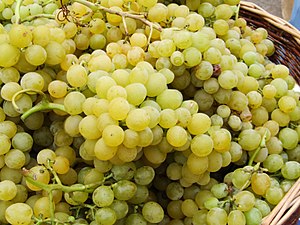 I must say I am not surprised at all by this accolade put on Bulagria's recently elected Prime Minister. Boyko Borisov is now not only the number one man here but a Bulgarian cult hero for this, I did warn you on a previous post about Bulgaria's number one rakia fan. I would be surprised if he is nominated as a Saint further down the line if the curfew on tax on rakia sticks. It is a curfew as the EU steamroller will get their way in the end.
I must say I am not surprised at all by this accolade put on Bulagria's recently elected Prime Minister. Boyko Borisov is now not only the number one man here but a Bulgarian cult hero for this, I did warn you on a previous post about Bulgaria's number one rakia fan. I would be surprised if he is nominated as a Saint further down the line if the curfew on tax on rakia sticks. It is a curfew as the EU steamroller will get their way in the end.Bulgarian villagers have named their home-made rakia brandy 'Borisovka', playing on the name of Prime Minister Boiko Borisov to thank him for stopping parliament from raising taxes on alcohol.
Last month, the Balkan country's new centre-right government abandoned plans to raise alcohol taxes after public anger that this would threaten a centuries-old tradition of making wine and rakia at home.
But the parliament's budget commission later proposed a hike from 2010 and parliament was due to approve the increase on Wednesday when Borisov, a firefighter by training with a black belt in karate, stepped in and asked deputies to scrap the plan.
To express their gratitude, the villagers of Kapatovo, 170 km (100 miles) south of Sofia, decided to call their 2009 rakia 'Borisovka', emulating Russian vodka brand 'Putinka' that plays on the name of Prime Minister Vladimir Putin.
'The people of my village and other villages are jubilant. But not because we are drunkards, this must be clear. We simply want to preserve this tradition of making rakia at home,' Standart daily quoted Kapatovo's mayor Ognyan Kukov as saying.
Bulgarian families are allowed to produce 30 litres a year of rakia, a traditional grape brandy, without paying tax.
Source: www.forbes.com


![Reblog this post [with Zemanta]](http://img.zemanta.com/reblog_b.png?x-id=3bc1557b-2169-4a55-a25d-928d407db17c)

![Reblog this post [with Zemanta]](http://img.zemanta.com/reblog_b.png?x-id=1af5a5b9-f7d7-4177-9967-8755367d945b)

![Reblog this post [with Zemanta]](http://img.zemanta.com/reblog_b.png?x-id=c52ee8b0-fe31-4f7c-96ac-2a3336a67367)

![Reblog this post [with Zemanta]](http://img.zemanta.com/reblog_b.png?x-id=5cd9e73a-4c27-40cd-a12b-775df0249cbc)

![Reblog this post [with Zemanta]](http://img.zemanta.com/reblog_b.png?x-id=54744cc9-5b43-4a4b-ab05-987b3c456ba8)

![Reblog this post [with Zemanta]](http://img.zemanta.com/reblog_b.png?x-id=ba7422e9-2791-4ec8-9c71-6cc910625ba6)


![Reblog this post [with Zemanta]](https://img.zemanta.com/reblog_b.png?x-id=7edb65a2-a2bf-4df6-b15e-94148569146a)


![Reblog this post [with Zemanta]](http://img.zemanta.com/reblog_b.png?x-id=6ddf7328-2657-436e-927c-74fec7afff21)

![Reblog this post [with Zemanta]](http://img.zemanta.com/reblog_b.png?x-id=837e0ad7-30f6-4bd0-aa1f-4000b7ebbe45)
![Reblog this post [with Zemanta]](http://img.zemanta.com/reblog_b.png?x-id=a56ee9b3-8f7d-448a-b82b-bb736325f389)
![Reblog this post [with Zemanta]](http://img.zemanta.com/reblog_b.png?x-id=24f87845-a624-4faf-a62d-5a11fe9fb4ad)
![Reblog this post [with Zemanta]](http://img.zemanta.com/reblog_b.png?x-id=9fb7e73e-90fc-4e32-8739-e8be7a6e376d)

![Reblog this post [with Zemanta]](http://img.zemanta.com/reblog_b.png?x-id=e3346c63-9a46-4c30-a9e6-427412e60b45)